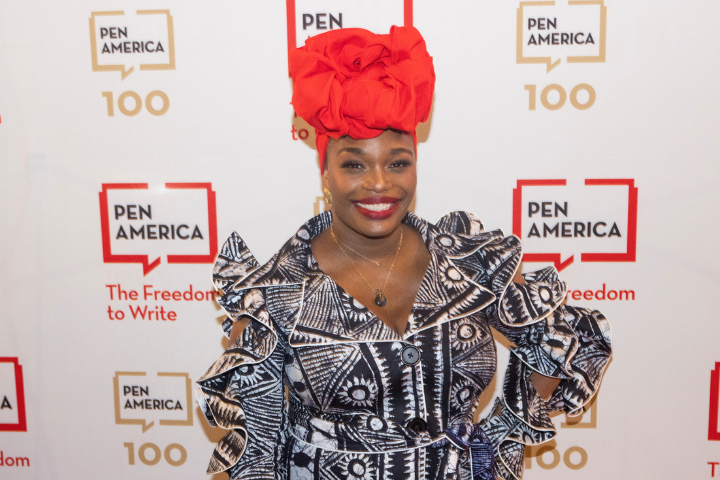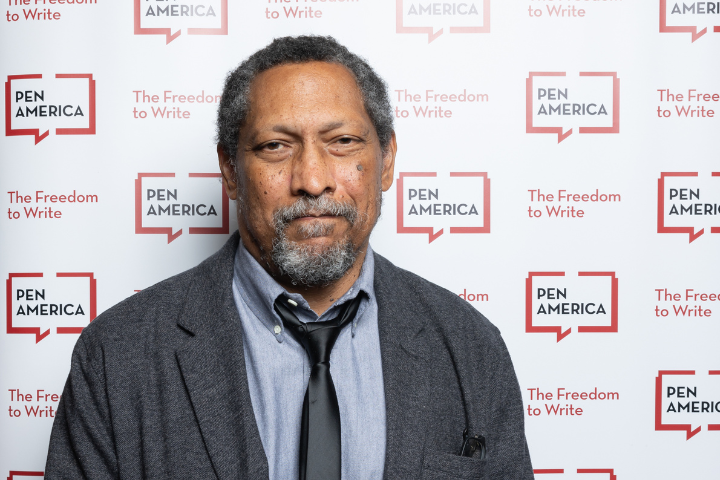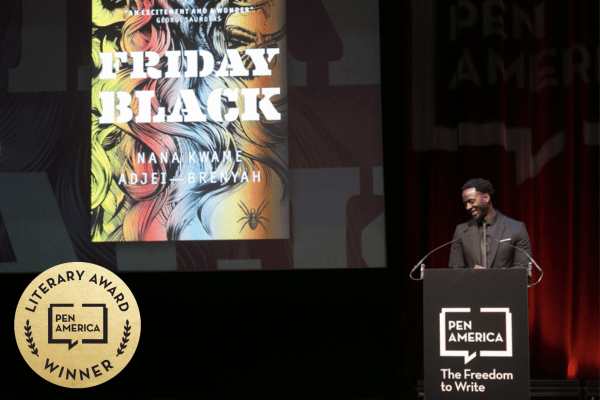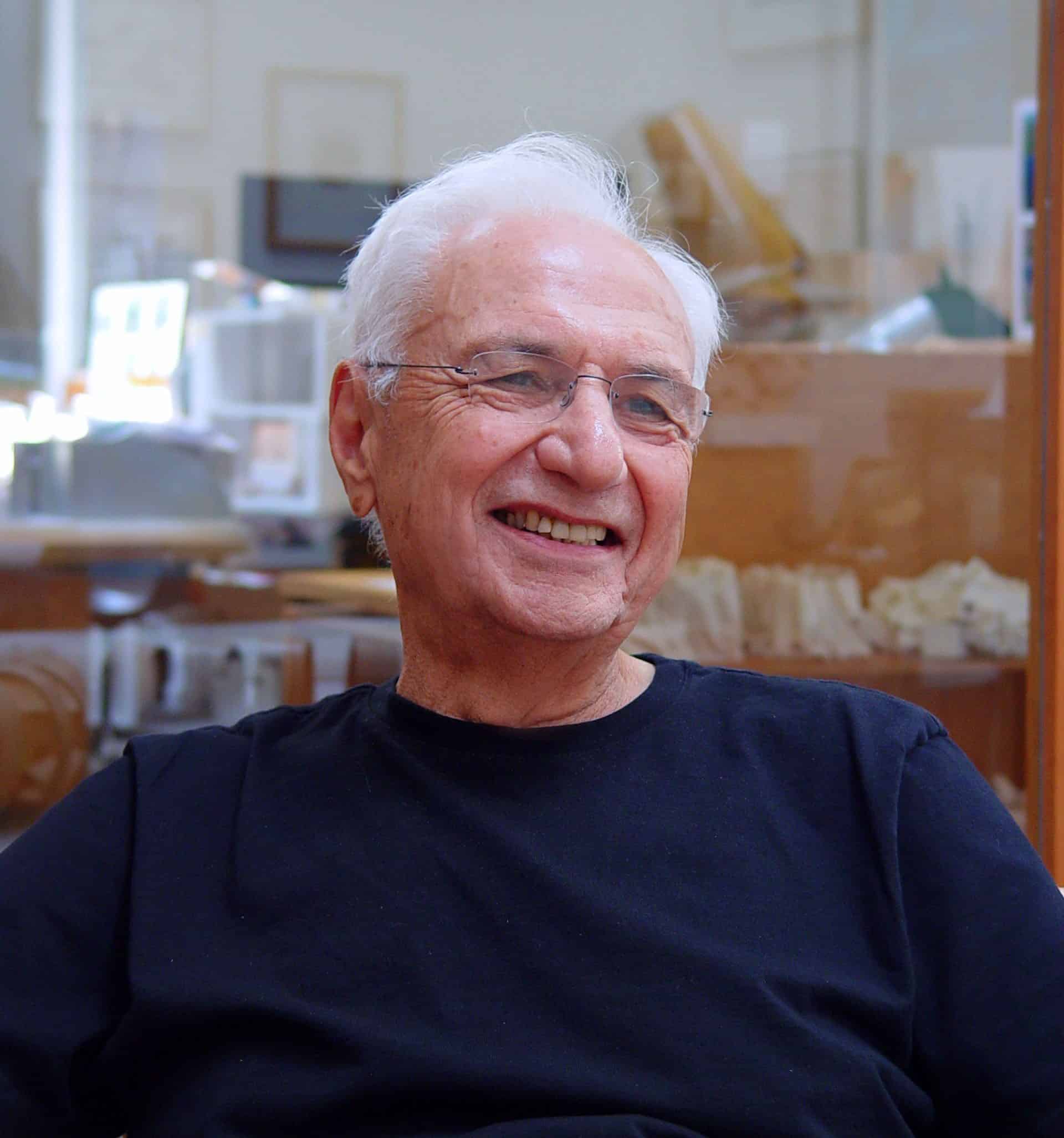 Morgan Talty had good reason to miss the ceremony where he won the $25,000 PEN/Robert W. Bingham Prize for a debut short story collection. In fact, he slept through it.
Morgan Talty had good reason to miss the ceremony where he won the $25,000 PEN/Robert W. Bingham Prize for a debut short story collection. In fact, he slept through it.
The Night of the Living Rez author and his wife Jorden welcomed a new son, Charlie, three days before the ceremony. Naturally, they were all sleeping as much as they could — including during the PEN America Literary Awards ceremony on March 2.
“I was actually trying to squeeze in some sleep and I slept through the ceremony and I woke up to messages from (publisher) Tin House and everybody saying I’d won,” Talty said from his home in Maine. “I came out and my wife and mother-in-law were all excited, and it was just a great, great feeling.”
Days later, Talty was also awarded the Sue Kaufman Prize for First Fiction from the American Academy of Arts and Letters. “It’s been a crazy week and a half,” Talty said.
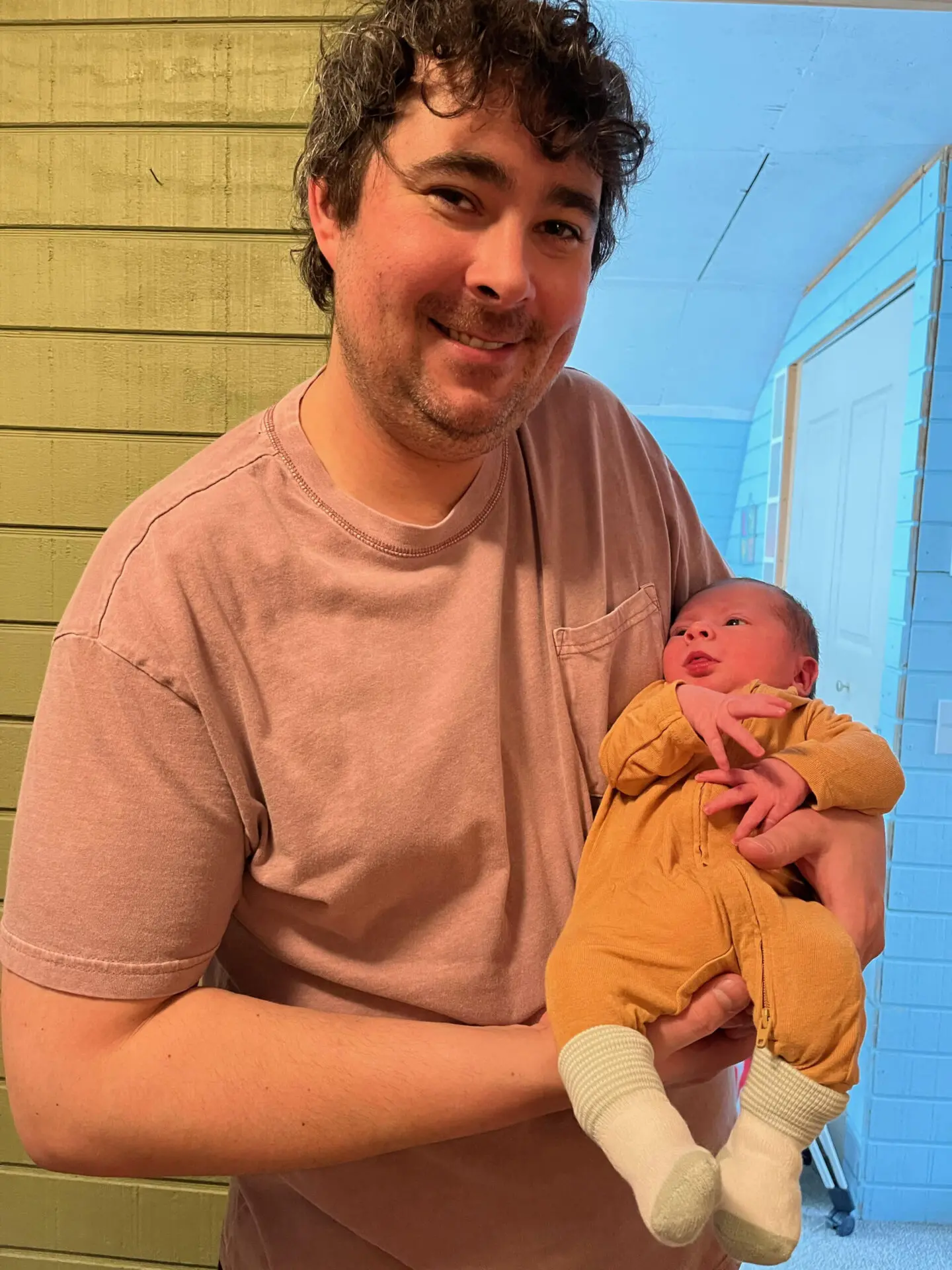
He hadn’t gotten his hopes up about winning, because “you never know with these things.”
“You get your hopes up for things and then you get let down, so I think I’ve gotten pretty used to being like, ‘what comes, what comes,’” he said. “I’m always very happy for whoever wins these types of awards.”
Talty, a citizen of the Penobscot Indian Nation, was especially gratified to see a number of Native Indigenous writers represented in the PEN America Literary Awards, including Oskar Hokeah, who won the PEN/Hemingway award for a debut novel for Calling for a Blanket Dance, and two-time finalist Ramona Emerson, author of Shutter.
“It was great to see so many Indigenous writers being represented in these awards. It was fantastic,” he said. He credited Tommy Orange’s There There for upending expectations about what Indigenous fiction could be. There There won the PEN/Hemingway prize for a first novel in 2019.
“There was a surge of energy after his book, and I don’t think it’s let up. I think it keeps going,” he said.
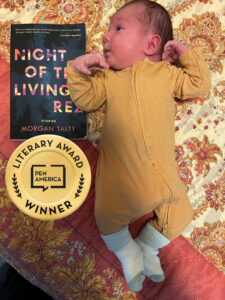 As for Charlie, born at 7 pounds, 10 ounces, he’s happy and healthy, if sleepy.
As for Charlie, born at 7 pounds, 10 ounces, he’s happy and healthy, if sleepy.
“We ticked him off this morning starting tummy time too early. So he didn’t like that,” Talty said. “He’ll lift his head and then turn it one way, I think to just get comfortable, and then he falls asleep.”
Once life settles down, Talty will get back to edits for his first novel, Fire, Exit, out in 2024 with Tin House. It centers on “blood quantum,” or the measurement of the amount of Native ancestry that sometimes determines who can be a citizen of a tribe.
Talty’s colleagues at the University of Maine, Orono, covered his classes after his wife gave birth. He thinks they were among the many congratulatory calls and messages he received, though he admits: “I’ve lost all sense of place and time and things.”
Talty called the award a “deep honor.” He didn’t get to give a speech at the ceremony at The Town Hall in New York, hosted by Kal Penn, but if he had, he would have thanked PEN America and congratulated all the finalists.
“I’m happy to have been alongside all of these writers,” he said.
I woke up from a nap to this news and was blown away, filled with so much joy, and then I exploded when I fed my baby boy. Thanks @PENamerica and congrats other finalists and winners! And thank you all who congratulated jord and me on Charlie. Now, back to him! pic.twitter.com/Unxr7TCikE
— Morgan Talty (@Morgan_J_Talty) March 4, 2023

